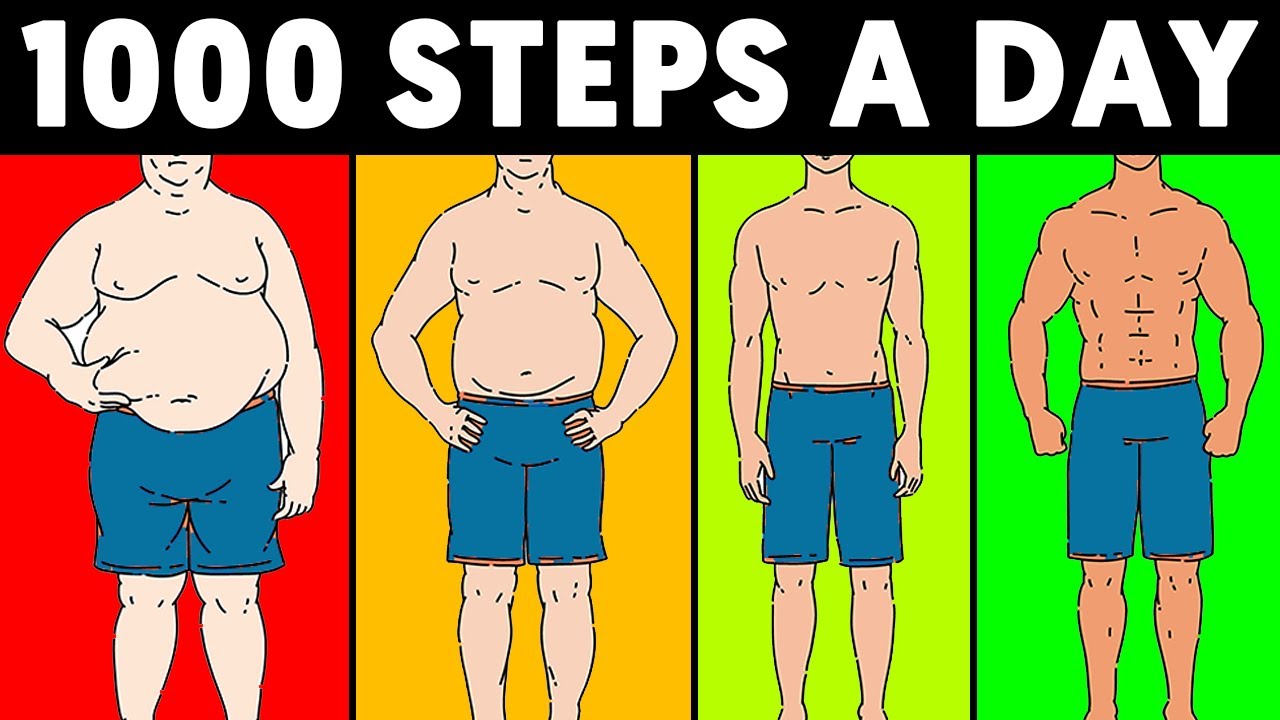What happens when you do 1000 steps a day
Even a simple yet regular walking routine can produce significant results in improving your health.
If you ask fitness and health experts, they’d say getting at least 10,000 steps a day will have you experiencing real benefits.
But if you find achieving 10,000 steps per day a challenge, consider other ways to add more activity in your day, like walking around your house, or spending some time on the treadmill.
On the flip side, if you’re already pro at hitting 10,000 steps, upping your current activity level by 1,000 steps can result in huge benefits.
An additional 1,000 steps, for starters, is good for your heart.
It also helps reduce stress and many more benefits, which we will be talking about next so keep watching.
1. Helps regulate cholesterol levels
Have a high LDL, a.k.a., the bad kind of cholesterol?
Incorporating an extra 1,000 steps a day can help stabilize your high LDL levels into normal amounts.
When your body is on the move, you’re burning up cholesterol and other lipids in your bloodstreams.
As a result, you can keep these harmful elements from causing damage to your blood vessels.
2. Improves heart health
Simply switching from being inactive to active in even the modest levels of activity will significantly improve your health.
On top of that, it helps lower the risk of heart disease.
Furthermore, exercise makes it easier for your heart to pump blood throughout your body.
When this continues, more blood is distributed to your muscles, and your blood oxygen levels increase.
3. A good way to destress
A short walk is enough to improve your mood and lower stress.
An additional 1,000 steps can help clear your head and encourage feelings of peace.
Exercising causes your body to produce endorphins, which are chemicals that improve your mood and temperament.
Moreover, movement reduces cortisol levels, a stress hormone that can make you anxious and increases the likelihood of experiencing physical and mental health issues.
Suffice it to say, even a mere 1,000 steps can go a long way in helping you destress and unwind.
4. Helps lose weight
Sure, walking isn’t as intensely stimulating as many other workout routines.
That said, walking 1,000 steps more a day can help you lose weight over time.
An extra 1,000 steps alone can help burn around 50 calories or a total of 350 calories in a week.
So, if you’re unable to progress with your weight loss journey, a little extra walking may just be the boost you need.
5. Strengthens the bones
Lastly, doing 1,000 extra steps a day strengthens your bones.
Since walking isn’t too intense, it helps strengthen the bones by making them more resilient.
Any other exercise, weight, or pressure, as long as they aren’t too much, are good for the bones.
This extra pressure stimulates cells known as osteoblasts that can transform into new bone cells.
Needless to say, an additional 1,000 steps a day has solid health perks.
So, do you think you can do it?
Feel free to share your experience or thoughts below.



![[ID: Hx_A0iLhdr8] Youtube Automatic](https://bizimtube.com/wp-content/uploads/2021/03/id-hxa0ilhdr8-youtube-automatic-236x133.jpg)
![[ID: lp7w0UmpuIs] Youtube Automatic](https://bizimtube.com/wp-content/uploads/2021/03/id-lp7w0umpuis-youtube-automatic-236x133.jpg)
![[ID: s2-7T1TH-lY] Youtube Automatic](https://bizimtube.com/wp-content/uploads/2021/03/id-s2-7t1th-ly-youtube-automatic-236x133.jpg)
![[ID: b_lakC9M4UQ] Youtube Automatic](https://bizimtube.com/wp-content/uploads/2021/03/id-blakc9m4uq-youtube-automatic-236x133.jpg)
![[ID: r44yl6nPONs] Youtube Automatic](https://bizimtube.com/wp-content/uploads/2021/03/id-r44yl6npons-youtube-automatic-236x133.jpg)
![[ID: pAwto1YQjA8] Youtube Automatic](https://bizimtube.com/wp-content/uploads/2021/03/id-pawto1yqja8-youtube-automatic-236x133.jpg)
![[ID: XETG8azHiv4] Youtube Automatic](https://bizimtube.com/wp-content/uploads/2021/03/id-xetg8azhiv4-youtube-automatic-236x133.jpg)
![[ID: f3G_-S_2HUk] Youtube Automatic](https://bizimtube.com/wp-content/uploads/2021/03/id-f3g-s2huk-youtube-automatic-236x133.jpg)
![[ID: G8oWns54snA] Youtube Automatic](https://bizimtube.com/wp-content/uploads/2021/03/id-g8owns54sna-youtube-automatic-236x133.jpg)
![[ID: s0lIFXhu6aw] Youtube Automatic](https://bizimtube.com/wp-content/uploads/2021/03/id-s0lifxhu6aw-youtube-automatic-236x133.jpg)
![[ID: 4UTd2Ev8eYg] Youtube Automatic](https://bizimtube.com/wp-content/uploads/2021/03/id-4utd2ev8eyg-youtube-automatic-236x133.jpg)
![[ID: RKBGBjVJBxQ] Youtube Automatic](https://bizimtube.com/wp-content/uploads/2021/03/id-rkbgbjvjbxq-youtube-automatic-236x133.jpg)